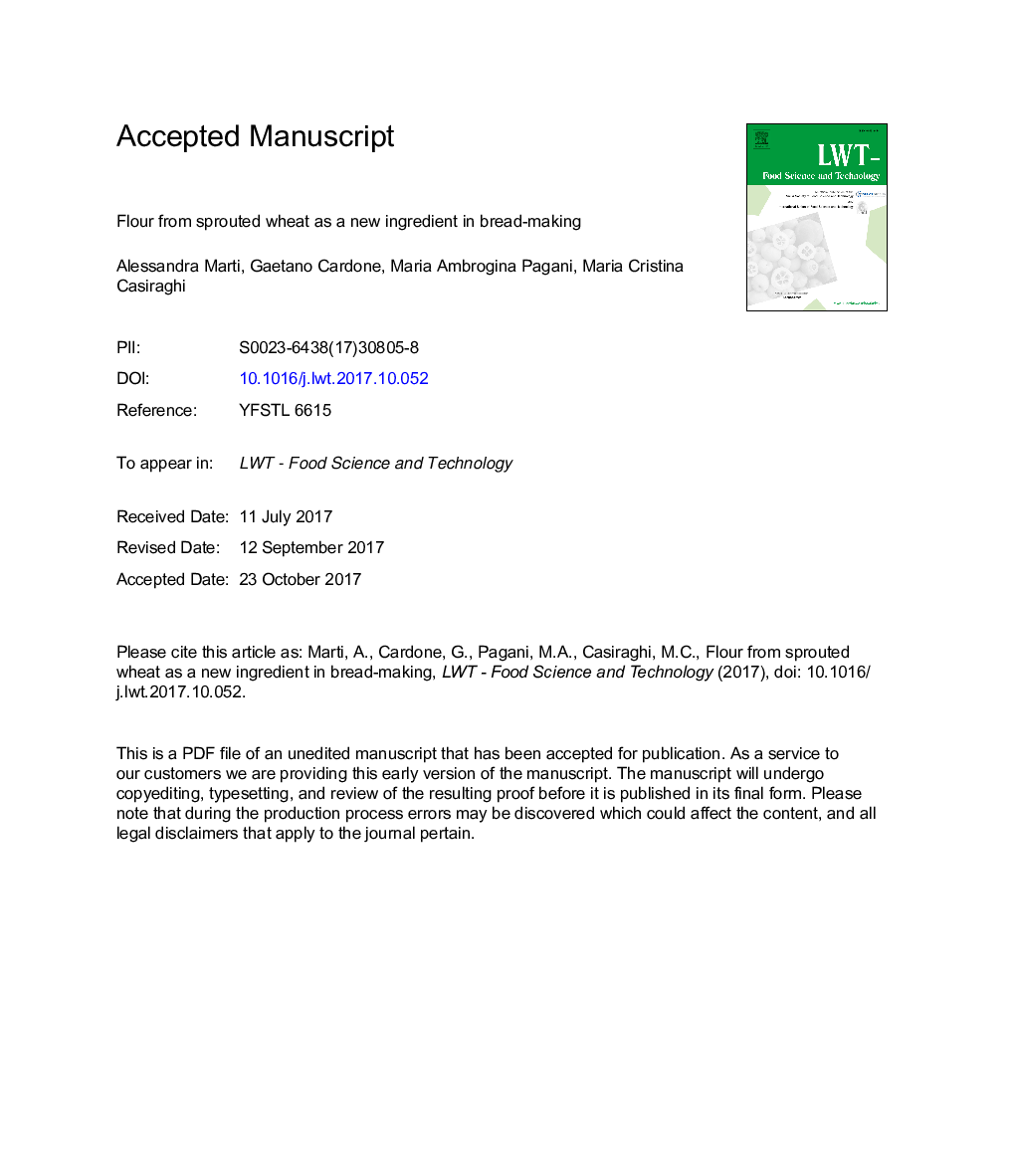| Article ID | Journal | Published Year | Pages | File Type |
|---|---|---|---|---|
| 8891910 | LWT - Food Science and Technology | 2018 | 33 Pages |
Abstract
Despite the nutritional and sensory improvements associated with sprouted grains, their use in baking has been limited until recently. Indeed, severe and uncontrolled grain sprouting induces high accumulations of enzymatic activities that negatively affect dough rheology and baking performance. In this study, wheat was sprouted under controlled conditions and the effects of enrichment (i.e. 15%, 25%, 33%, 50%, 75% and 100%) of the related refined flour (SWF) on dough rheological properties, baking performances and starch digestibility were assessed. Adding SWF to flour significantly decreased dough water absorption, development time, and stability during mixing, which suggests a weakening of the gluten network. However, no significant changes in mixing properties and gluten aggregation kinetics were measured from 25 to 75% SWF. Regardless of the amount added, SWF improved dough development and gas production during leavening. Decreases in gas retention did not compromise bread-making performances. The best result - in terms of bread volume and crumb porosity - was obtained with 50% SWF instead of using SWF alone. Interestingly, in 100% SWF bread the slowly digestible starch fraction significantly increased.
Related Topics
Life Sciences
Agricultural and Biological Sciences
Food Science
Authors
Alessandra Marti, Gaetano Cardone, Maria Ambrogina Pagani, Maria Cristina Casiraghi,
